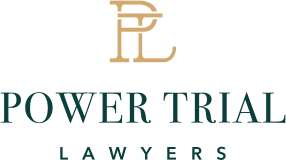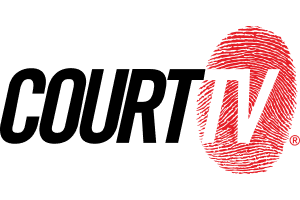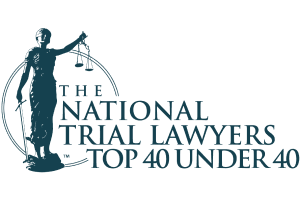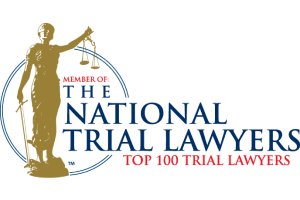- Free Consultation: (888) 808-2179 Tap Here to Call Us
If My Child is Injured, How Do Funds Get Handled?
In the state of California, every settlement made with a minor must go through the process of court approval. As is often the case in legal proceedings, it’s impossible to know exactly what the courts will do before it happens.

Navigating personal injury cases is already tricky for people without a lawyer, and it only becomes more complicated when one of the parties is a minor. Knowing what to do after a settlement is agreed to is crucial for parents and children.
In this article, we cover the distribution of funds awarded in cases with minors, who will receive those settlement funds, and how those funds can be controlled. For parents, a major area of concern is how the funds will be managed since the child is a minor and may not be best suited to handle the settlement funds from a legal proceeding.
Knowing how the funds will be distributed is impossible to know with certainty ahead of time, since each case is different. Families should be aware of the details of the process, and consult with an attorney to answer your child personal injury questions.
Minor’s Compromise and Hearing
Once parties agree upon a settlement, the process has just begun. The first thing to do is to file a petition known as a Minor’s Compromise. This document will detail the situation to the court and the amount of money the parents, on behalf of the minor, have been offered.
The child’s guardians must file the petition, which will include:
- All medical reports;
- A description of the events, the claim made about them, and the injuries that resulted;
- A description of the amount of money they’re seeking and the terms for receiving it;
- A description of how the claimant will manage the money; and
- A list of expenses and costs for which the claimant is seeking reimbursement.
After filing this petition, there will be a court hearing to review the petition and the related case. When the hearing has concluded, the court will approve or deny the terms of the proposed settlement.
People are often pressured into taking a smaller amount than they really should considering what their child’s injuries may be worth. For this reason, it’s wise to contact a Los Angeles personal injury trial attorney about your case, such as Power Trial Lawyers, P.C. The court does work to ensure that settlements are fair, but when both sides come to a figure and appear to be in agreement, the court can easily overlook key factors that a lawyer would have quickly flagged.
The court is neutral. An attorney is on one side or another. Take some power with you to the courtroom so you walk away with what you deserve.
Reimbursements, attorney fees, and other expenses will be paid out of the settlement. After that, the court will direct how the remaining funds will be distributed to the family.
The Minor’s Portion and Blocked Accounts
The minor will receive most or all of the settlement. The court will likely order that the money be held in a blocked account.
A blocked account is a type of account where the funds will be held for the minor until they reach the age of majority. No one else can access this account. Through the restriction of access to only the child, the court attempts to prevent any misuse of the funds from third parties.
While this option works well for many, full access to the minor at the age of majority may not always be the best option. Parents who worry about their 18-year-old misusing the funds may petition the court to set aside some of the money for education, medical needs, or other expenses.
Blocked Account Alternatives
Occasionally the courts will opt for an alternative to a blocked bank account. Some of those other available options are:
- Single-Premium Deferred Annuities. The court may set up this type of annuity and order the guilty party to make a lump-sum payment to it. The annuity pays the beneficiary for the rest of their life. This option features compound interest and tax deferment until the withdrawal of the money.
- Special Needs Trusts are often established for children who have sustained a disability, specifically in cases where the disability will result in the child’s becoming ineligible for government benefits like Social Security, which is often the case when the child has a blocked account.
In cases where the settlement amount is under $5,000, it will likely be deposited directly into the parent’s bank account. They receive instructions to hold it for the child until they turn eighteen. The final distribution of the funds is entirely at the court’s discretion.
Parental Share
For obvious reasons, parents are not given part of the settlement for the pain and suffering of their child. All damages, which include pain, suffering, disfigurement, and disability, go directly to the child. In many cases, they are also eligible for additional amounts for lost future wages.
While the parents do not receive part of the settlement, they very well may receive reimbursement for any expenses they have paid for from the settlement.
Parents also can, and should, sue for future medical expenses which will be incurred by their child. In cases of permanent disability, parents may also make a claim for lost income due to the cost of the extra care their child will need.
Unapproved Settlements
While its rare, unapproved settlements are also a possibility. These occur when parties are not able to obtain court approval before the child reaches the age of majority. In these cases, the child can bring their own case against the accused once they turn eighteen. The purpose of this is to protect minors who may turn eighteen while their case is still unresolved. Guardians also may disaffirm the suit as is and start fresh.
What’s Next for You as the Parent?
Keep in mind that every person or company which harmed your child will do their very best to minimize their liability. As soon as an injury has taken place, the most important action to take is finding a trial experienced personal injury attorney.
Power Trial Lawyers, P.C. is here to fight for you and not just accept the best settlement you think the accident is worth, but to powerfully go after the compensation you and your child deserve. Our dedicated legal team of personal injury trial attorneys provide representation to people like you to ensure that the scales of justice balance in a truly fair manner.
Don’t make this another item on your to-do list. Just reach out to us today to speak with one of our attorneys and we’ll discuss your options during a free consultation. Call now, (844) 844-POWER.
























